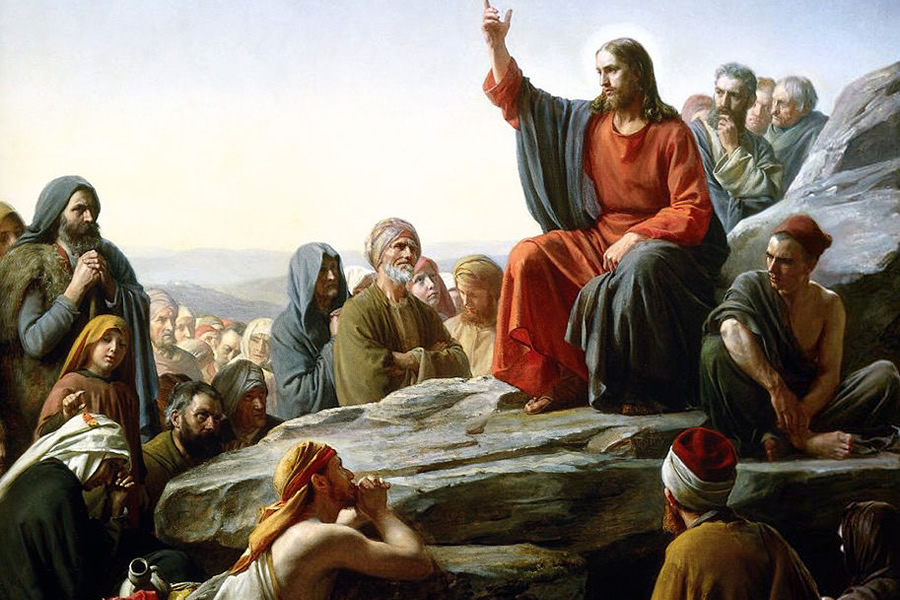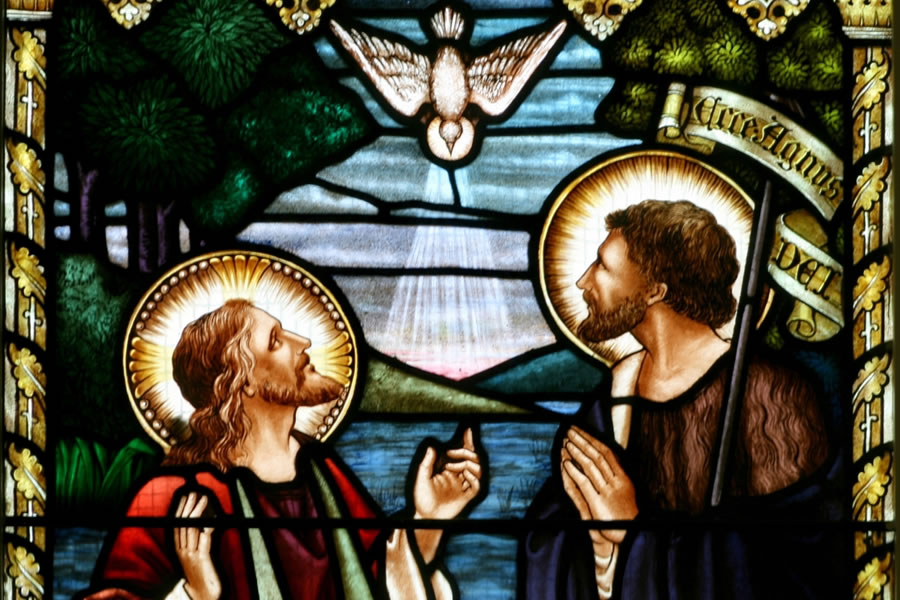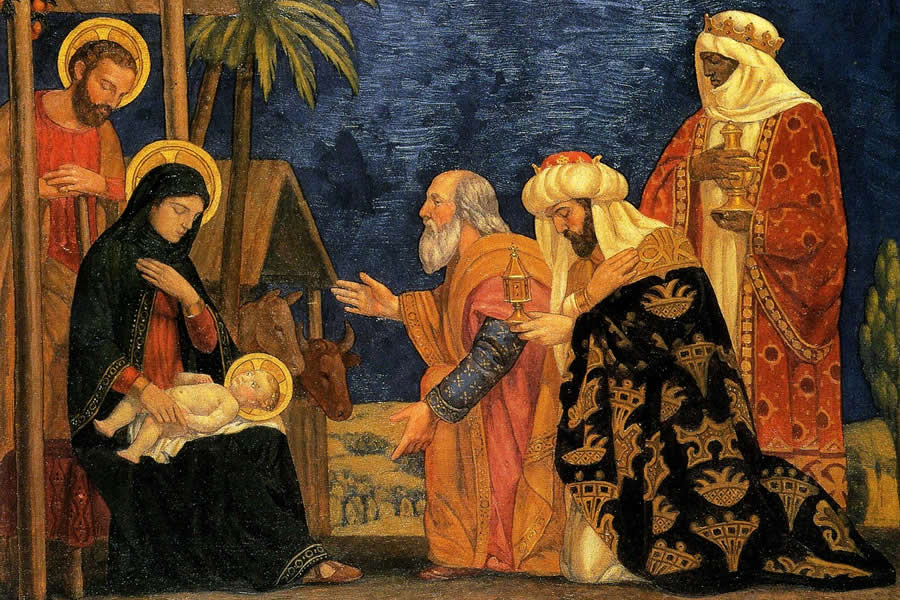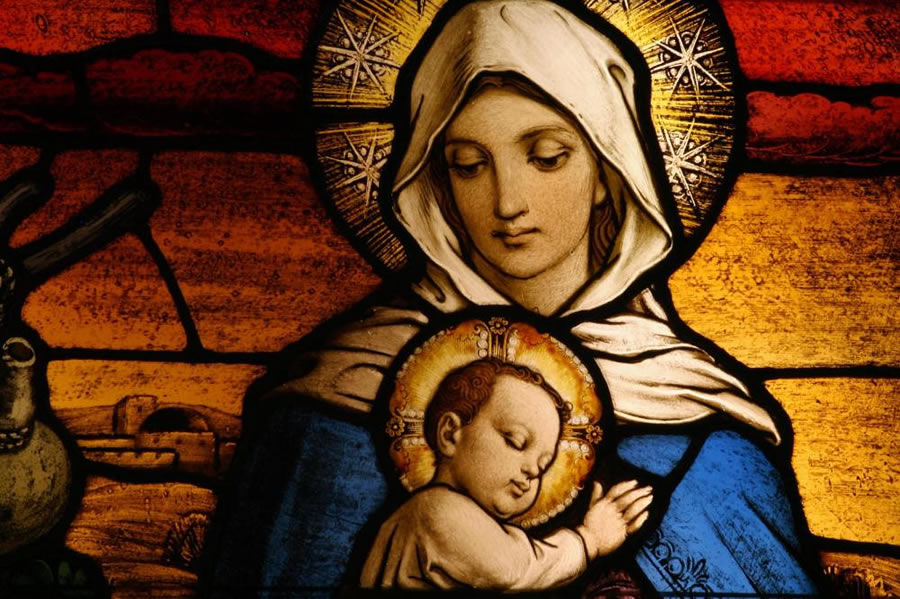St. Francis of Assisi Weekly Reflections

Blessed are the Peacemakers, for they will be called children of God
01-29-2017Weekly ReflectionFor the next five Sundays, we will hear from the Sermon on the Mount, the first of five great speeches we hear from Jesus in Matthew's Gospel. Since Matthew's community was largely composed of Jewish Christians, the evangelist presents Jesus as the New Moses. Just as Moses was believed to have written the first five books of the Bible, called the Torah, Matthew gives Jesus five great speeches that fulfill the Law of Moses. Notice that Jesus sits down, the posture of a rabbi or teacher, then begins to instruct his followers, called disciples, that is, learners.
READ MOREFourth Sunday in Ordinary Time:Blessed are we
01-29-2017Question of the WeekReading I: Zephaniah 2:3; 3:12-13 (promise for Jerusalem)
Reading II: 1 Corinthians 1:26-31 (paradox of God's choice)
Gospel: Matthew 5:1-12 (the beatitudes)
Key Passage: Blessed are you when people revile you and persecute you and utter all kinds of evil against you falsely on my account. Rejoice and be glad, for your reward is great in heaven, for in the same way they persecuted the prophets who were before you. (Matthew 5:11–12)
Adult: When you heard the Beatitudes announced today, which one struck you most strongly?
Child: Who is welcome in the reign of God? Who would you like to tell about the reign of God?

A people who were sitting in darkness have seen a Great Light
01-22-2017Weekly ReflectionWith the Christmas season over, we return to Matthew's Gospel during the Sundays between now and Lent, starting with the beginning of Jesus' ministry in Galilee. Matthew sets the stage by quoting the prophet Isaiah, today's first reading, applying it to Jesus as he begins to preach his gospel: "Repent, for the kingdom of heaven is at hand" (4:17). Jesus along with his message is the great light coming to "people who sit in darkness...dwelling in a land overshadowed by death" (4:16). Immediately, Jesus calls others to join him: Simon Peter and his brother Andrew, and two other brothers, James and John. He calls them, they respond immediately. The work of Jesus remains the work of the church: teaching and preaching and curing disease and illness. By our Baptism and through the power of the Spirit given to us then, this work unites us and demands our commitment. Jesus, his message, and his work are one and, as Paul reminds the Corinthians, we must not allow any kind of division or rivalry among ourselves to undermine the Lord's work—bringing light and salvation, fullness of life and healing—into our world. Jesus continues to call us.
Do you respond immediately? If not, why not?
—We Celebrate Worship Resource, Vol. 42, No. 1
READ MOREThird Sunday in Ordinary Time: Following Jesus
01-22-2017Question of the WeekReading I: Isaiah 8:23-9:3 (the Prince of Peace)
Reading II: 1 Corinthians 1:10-13, 17 (factions)br>Gospel: Matthew 4:12-23 (Jesus in Capernaum)
Key Passage: Jesus went throughout Galilee, teaching in their synagogues and proclaiming the good news of the kingdom and curing every disease and every sickness among the people. (Matthew 4:23)
Adult: To whom could you preach the gospel of Jesus Christ this week with actions rather than words?
Child: What could you do for someone this week that would tell them something about Jesus?

Behold, the Lamb of God
01-15-2017Weekly ReflectionThe command "Behold" brings us back into Ordinary Time. "Behold, the Lamb of God, who takes away the sin of the world," John the Baptist testifies on sighting Jesus (John 1:29). John is usually presented as the herald of Good News, but here he is the witness. A herald simply announces the news he is given: Repent, for the kingdom of heaven is at hand. But a witness is personally engaged. Here John testifies that Jesus is the Lamb of God who will be led to slaughter, sacrificed for the sin of the world. John also testifies that Jesus "ranks ahead of me", Jesus is "the reason why I came baptizing," and the one on whom the Spirit came down (John 1:30, 31).
READ MORE2nd Sunday in Ordinary Time: Jesus, the Son of God
01-15-2017Question of the WeekReading I: Isaiah 49:3, 5-6 (the servant of the Lord)
Reading II: 1 Corinthians 1:1-3 (greeting to the church)
Gospel: John 1:29-34 (John's testimony to Jesus)
Key Passage: [John said,] "I myself did not know him; but I came baptizing with water for this reason, that he might be revealed to Israel." (John 1:31)
Adult: We witness to Christ as John did, by living lives full of generosity, forgiveness, and mercy toward others. When do you find it most difficult to do this?
Child: Who has surprised you by doing something kind for you when you did not expect it?
Epiphany: A gift for all people
01-08-2017Question of the WeekReading I: Isaiah 60:1-6 (glory of the new Zion)
Reading II: Ephesians 3:2-3, 5-6 (commission to preach God's plan)
Gospel: Matthew 2:1-12 (the visit of the magi)
Key Passage: n the time of King Herod, after Jesus was born in Bethlehem of Judea, wise men from the East came to Jerusalem, "Where is the Child: who has been born king of the Jews? For we observed his star at its rising, and have come to pay him homage." (Matthew 2:1–2)

Have you witnessed God’s Epiphanies?
01-08-2017Weekly ReflectionThe feast of the Epiphany has been called the crowning feast of the Christmas season. Epiphany means a showing or manifestation, referring to God's revealing who God is in Jesus. The story of the magi is Matthew's proclamation to his own mixed community of Jews and Gentiles that in Jesus God came as a savior for all people, and continues to draw all people to search for and find God. In the story this is done through nature (the star) and the scriptures. Today's good news is succinctly captured in the brief reading from Ephesians: God's will is that all people, Gentiles as well as Jews, be "coheirs, members of the same body, and copartners in the promise in Christ Jesus" (3:6). As our own country becomes more diverse with all the promise and challenge this implies, our faith calls us to recognize God as the father of all, who has entrusted creation into our hands to be cherished and tended for the good of all. God continues to draw all to dwell in God's holy city, as Isaiah prophesied.
We may be tempted to think only exotic figures like the magi have seen the epiphanies God offers. But haven't you?
—We Celebrate Worship Resource, Vol. 42, No. 1
READ MORE
God sent His Son, Born of a Woman
01-01-2017Weekly ReflectionAs a new year begins, we hear first an ancient blessing that continues into our day, offering protection, grace, and peace. Furthermore, we hear that the God of blessing has adopted us as children by sending the Spirit into our hearts, allowing us to call God, Abba, Father. Celebrating Christmas is like throwing a rock into a pond and watching the ripples that flow out from it. Christmas Day focuses on the gift of Jesus, true God, true man. The feast of the Holy Family reminds us how the Christ event impacts the family, enabling it to be holy. Today we celebrate Mary, the mother of God and of the Church. The Church continues to learn from Mary how to bring Christ into the world. Today’s Gospel again presents Mary as one who reflects, who ponders what others tell her. The shepherds brought her the angel’s message about the child: He is the savior born for all people. It is the work of the Church and all its members to reflect on this mystery and witness to it in the world.
What can Mary teach you about her Son?
—We Celebrate Worship Resource, Vol. 42, No. 1
READ MOREMary, Mother of God: Helping others to know God’s blessing
01-01-2017Question of the WeekReading I: Numbers 6:22–27 (the priestly blessing)
Reading II: Galatians 4:4–7 (free sons of God in Christ)
Gospel: Luke 2:16–21 (the shepherds' visit, the circumcision)
Key Passage: The Lord bless you and keep you; the Lord make his face to shine upon you, and be gracious to you. (Numbers 6:24–25)
Adult: How has God blessed and kept your family? What can you do as a family this week to show your gratitude for these blessings?
Child: When have you felt most blessed by God? What can you do to help someone in your family feel the same way?
Holy Family: Nurturing family relationships
12-30-2016Question of the WeekReading I: Sirach 3:2-6, 12-14 (duties toward parents)
Reading II: Colossians 3:12-21 (the practice of virtues)
Gospel: Matthew 2:13-15, 19-23 (the flight to Egypt)
Key Passage: Joseph got up, took the Child and his mother by night, and went to Egypt. (Matthew 2:14)
Adult: What can you do this week to help someone in your household or circle of friends feel more secure and loved?
Child: What good thing will you do this week to show yourlove for a parent or grandparent?
Christmas: Midnight
12-25-2016Question of the WeekReading I: Isaiah 9:1–6 (the Prince of Peace)
Reading II: Titus 2:11–14 (transforming of life)
Gospel: Luke 2:1–14 (the birth of Jesus)
Key Passage: Isaiah 9:5 (a Child is born)
Adult: Why is knowing Jesus important in your life?
Child: How do you experience Jesus when you give a gift to someone else?

Glory to God in the Highest
12-25-2016Weekly ReflectionWhen Judy Garland first saw the lyrics to "Have Yourself a Merry Little Christmas" for the film Meet me in St. Louis, she said they were too gloomy, even though they reflected a family's real sadness at leaving their home. The original lyrics expressed true despair, so she persuaded composer Hugh Martin to change them to a more hopeful tone, the words we all know today. The human spirit wants to hope and that's what the Christmas story gives us, proclaiming God's love in becoming one with us in Jesus. The best Christmas song remains the original: "Glory to God in the Highest and on earth peace to those on whom God's favor rests" (Luke 2:14).
READ MORE
Are you being obedient to your faith?
12-18-2016Weekly ReflectionPope Francis celebrated his first Mass as pope on the feast of Saint Joseph. In his homily, he held up Joseph as one who models mercy for us by being the protector of Mary and Jesus. By taking Mary into his home as his wife and giving the child the name Jesus, Joseph cooperates with the Spirit of God, who is bringing about a new creation. Unlike King Ahaz who backed away from working with the prophet who came in God's name, Joseph does angel's biding. Pope Francis preached that we can see immense tenderness in Joseph's heart. Because of that tenderness, a child is born who is Emmanuel, God-with-us, and a pattern is set: God chooses to work through human beings to bring salvation and new life to the world. On our part, we are invited to participate in what Saint Paul calls "the obedience of faith" (Romans 1:5), made possible by the grace God so lavishly bestows on us so we might know and do God's will.
READ MOREFourth Sunday of Advent: Welcoming light
12-18-2016Question of the WeekReading I:Isaiah 7:10-14 (birth of Emmanuel)
Reading II:Romans 1:1-7 (greetings from Paul)
Gospel: Matthew 1:18–24 (the birth of Jesus)
Key Passage: When Joseph awoke from sleep, he did as the angel of the Lord commanded him; he took Mary as his wife. (Matthew 1:24)
Adult: Whom do you find it difficult to welcome in your life? What can you do to overcome that?
Child: What could you do this week to make someone feel welcome, as Joseph welcomed Mary?

He will come again!
12-11-2016Weekly ReflectionPope Francis says the gospel constantly calls us to rejoice. That is certainly true today. Isaiah's vision promises a healing of two bodies: the earth's body and the human body. What was a parched and dry desert will blossom and bloom. Glory and splendor will replace gloom and sorrow. Feeble hands and weak knees, the blind and the deaf, the lame and the mute—all will meet with joy and gladness. When will all this come about? When God comes, says Isaiah. Then Luke proclaims: This has happened in Jesus of Nazareth, in the person of a carpenter-preacher-healer-exorcist-Savior, once crucified, then raised, and who promises to come again. Can you hold on to this? The Letter of James counsels patience, a word rooted in the Latin word for suffering. One must suffer waiting for a new world's arrival. But joy is found even now because the Lord visits his waiting people in word and sacrament, and in others. This Sunday allows for wearing rose vestments as a sign of the coming joy Advent promises: "He will come again."
Where do you find this joy in your life?
—We Celebrate Worship Resource, Vol. 42, No. 1
READ MOREThird Sunday of Advent: Actions worthy of praise
12-08-2016Question of the WeekReading I: Isaiah 35:1-6, 10 (Israel's deliverance)
Reading II: James 5:7-10 (patience)
Gospel:Matthew 11:2-11 (Christ's witness to John)
Key Passage: Jesus said, "Truly I tell you, among those born of women no one has arisen greater than John the Baptist; yet the least in the kingdom of heaven is greater than he." (Matthew 11:11)
Adult: How do you prepare yourself to meet Christ in those around you?
Child: What good thing have you done so far during Advent to be like Jesus?

Repent: Change your Heart
12-04-2016Weekly Reflection"Repent. Change your heart." On two Sundays every Advent, John the Baptist comes before us with his message calling for a change of heart, for doing what will transform us from a people caught up in our own pursuits to a community open to the dawning of a new age focused on Jesus Christ. John castigates the religious leaders who came out to the wilderness to hear him but whose hearts were far from being open to change. Calling them a brood of vipers would not have won them over, but he accurately declared that the hiding behind a claim to be descendants of Abraham would not gain them the kingdom of heaven either. What was needed was a full-fledged conversion of heart, a pilgrimage to the interior desert where God could woo and win them. The farseeing vision of the prophet Isaiah of one who would come in the power of the Spirit has been fulfilled in Christ. May the Scriptures encourage us to endure in hope, as Paul writes, so we may glorify the God and the Father of Jesus Christ.
How is the Holy Spirit guiding you to renew your heart and your hope during Advent?
—We Celebrate Worship Resource, Vol. 42, No. 1
READ MORE